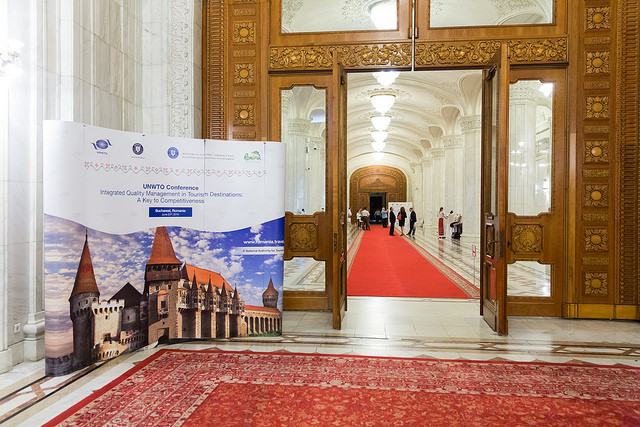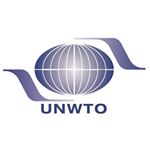

Quality Management key for the competitiveness of tourism destinations
Quality management indicators and processes are key tools for the competitiveness of tourism destinations concluded the UNWTO Conference on Quality Management held last week in Bucharest, Romania.
In that regard, participants to the conference called for an integrated approach to quality management as a priority in long-term strategic planning of Destination Management Organizations (DMOs) at national and sub-national levels.
An integrated quality management approach to destination management contributes to improving the image of the destination, enhances the legislative framework and minimizes operational challenges.
“We live in an increasingly competitive sector. Quality standards provide a framework to guide stakeholders to improve their operations and services along the whole tourism value chain so as to create a complete and positive tourism experience” said UNWTO Secretary-General, Taleb Rifai.
Costin Grigore Borc, Deputy Prime Minister and Minister of Economy, Commerce and Relations with the Business Environment of Romania said “the dynamic changes in the global tourism market require qualitative transformation of nearly every tourism segment within a destination. For tourism destinations to survive, trends that relate to a continuous improvement of the tourism supply quality need to be intensely tracked.”
“Tourism, multi-sectorial by nature, was and still is vulnerable to market turbulence and economic crises. However, it was able to withstand the global economic crisis more than most other sectors, to relaunch as few sectors have been able to, and to quickly recover from periods of temporary weakness” remarked Anca Pavel-Nedea, President of the National Tourism Authority of Romania at the opening of the conference.
The Conference focused on ‘destination quality’ as a step beyond ‘product/service quality’, and provided a showcase for sharing initiatives and good practices in quality management in coastal destinations, protected areas, spa/wellness destinations, urban destinations and cultural heritage destinations.
The 103rd UNWTO Executive Council Meeting held in Málaga last May approved the following definition of Quality of a Tourism Destination, as proposed by UNWTO’s Committee on Tourism and Competitiveness: “Quality of a Tourism Destination is the result of a process which implies the satisfaction of all tourism product and service needs, requirements and expectations of the consumer at an acceptable price, in conformity with mutually accepted contractual conditions and the implicit underlying factors such as safety and security, hygiene, accessibility, communication, infrastructure and public amenities and services. It also involves aspects of ethics, transparency and respect towards the human, natural and cultural environment”.

UNWTO to support Ukraine’s tourism development
UNWTO will work with the Government of Ukraine to support the development of its tourism sector. The cooperation will focus on the areas of tourism statistics, communications and capacity building within the Organization for tourism officials and graduates from the country’s tourism educational institutions. The initiatives were discussed between UNWTO Secretary-General Taleb Rifai and Vice-Prime Minister for Euro-Integration and Euro-Atlantic Integration Ivanna Klympush-Tsyntsadze at the sidelines of the Conference on ‘Destination Branding – keys to building a successful reputation’, organized by the Ministry of Economic Development and Trade of Ukraine in collaboration with UNWTO.
The Conference discussed the impact of technology on destination branding as well as the evolving roles of National Tourism Organizations (NTOs) and Destination Management Organizations (DMOs) in destination branding, in view of current technological and consumer changes. The Conference was preceded by a UNWTO Masterclass on Tourism Destination Branding, which brought together representatives from the various regions of Ukraine.
“Tourism is one of the best areas of investment and income generation,” said Ms Klympush-Tsyntsadze, opening the event.
Ms. Yuliya Klymenko, Deputy Minister of Economic Development and Trade, presented the ten issues the Government will look to address in developing Ukraine’s tourism sector, including the review of legislation, public/private sector partnerships, the creation of a network of regional tourism brands, improving statistics and the liberalization of visa regimes.
During the Conference, Ukraine announced the implementation of visa-upon-arrival measures for Chinese tourists, complementing similar visa facilitation initiatives taken earlier this year for visitors from Australia and New Zealand.
“UNWTO has long been advocating for travel facilitation as a means to promote economic growth through tourism. We welcome very much the decision of the Government of Ukraine to concede visa upon arrival to Chinese tourists, as this is an example of its vision and commitment to tourism development,” said Mr. Rifai. “China is the world’s top source market, with US$ 292 billion spent on travelling abroad last year, and we trust this measure will yield significant benefits to the economy of Ukraine,” he added.
